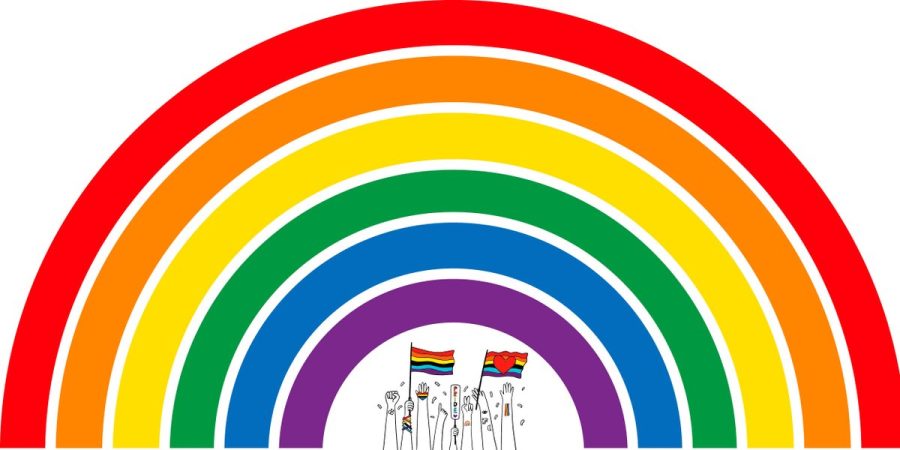Professors and staff learn LGBTQ support
October 14, 2022
LGBTQ indviduals are three times more likley to experience mental health issues than others, the faculty adviser for the Genders and Sexualities Club told professors and staff at a Coming Out Week event on Monday.
One in three LGBTQ Americans faces discrimination and more than half hide a personal relationship to avoid discrimination, academic literacies professor Forrest Caskey added.
Faculty can support their LGBTQ students better if they undersand “the percentages of people who struggle with mental health [who] are LGBTQ, who experienced violence, who are afraid to come out at work or school, those kinds of things,” Caskey said.
As part of the first in-person Coming Out Week celebration in three years, Caskey presented at the event, called “Becoming an AACC LGBTQ Ally.”
“So it really is important that allies know about … resources so they can help their LGBT friends. … And without allies, like we would not have LGBT rights, like it’s our allies who have advocated for us,” Caskey said.
He added: “A lot of my LGBT students say that they come here to feel safe when they don’t feel safe at home or their community. When they come here, they’re a little bit more free with their identity and expression.”
Caskey, the interim coordinator for inclusive excellence, taught fellow faculity and staff how to be allies through LGBTQ history.
“I went through a little history about LGBT history and then on various resources of how people can be an ally,” Caskey said after the event. “So if a student needs something, this is who you reach out to, so people can be a conduit of information.”
During the event, Caskey introduced his Canvas page, “AACC and Community Resources,” where students and faculty can find links to LGBTQ resources like The Trevor Project and The Pride Center of Maryland.
“It’s mostly for students, Caskey said. “But it’s also for us to guide students to some of these resources … for different marginalized groups.”
Caskey explained that building a community is one of the most important things professors and staff can do for LGBTQ students.
When staff and faculty take training like this, they help create a more inclusive environment for LGBTQ students, Caskey said.












